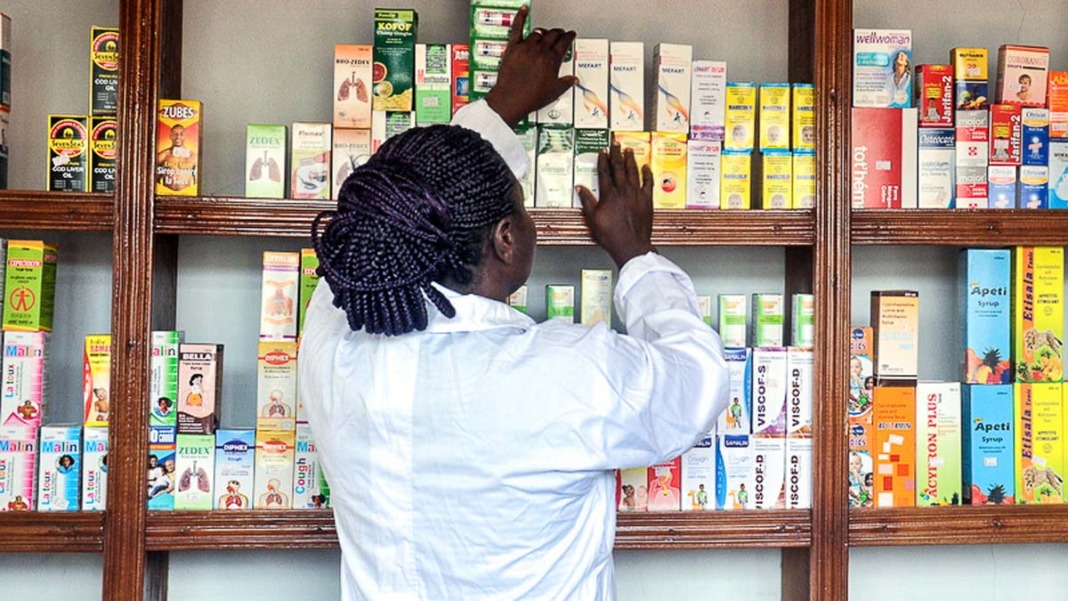Pharmacists belonging to the Industrial Pharmacists of Nigeria (NAIP) have raised serious concerns about an imminent scarcity of essential and non-essential prescription drugs. The NAIP has revealed that prices of drugs have skyrocketed by over 300 percent, posing a grave threat to the health and well-being ofs. As the nation grapples with the potential consequences of this crisis, pharmacists are calling for immediate government action to address the situation and ensure the availability and affordability of crucial medications.
During a press briefing held on Tuesday, the NAIP announced its 26th conference, titled ‘Coal City 2023,’ which will serve as a platform to address the pressing issue of drug scarcity in the country. The conference, scheduled to take place from July 5 to 8 at the Carlton Swiss Grand Hotels in Enugu, will focus on the theme, ‘Role of Pharmaceutical Industry Towards Achieving Medicines Security.’
Chairman of the occasion, Mr. Charles Ajibo, expressed deep concerns about the significant shortage of essential medicines and medical products across the nation. He emphasized that drug scarcity could lead to a deterioration in health conditions, delayed surgical operations, increased patient suffering, and, in severe cases, even death. The situation is exacerbated by the fact that over 70 percent of drugs and active pharmaceutical ingredients used by local manufacturers are imported, making the country highly susceptible to shortages and price fluctuations.
Mr. Ken Onuegbu, the National Chairman of NAIP, highlighted the unexpected surge in prices of essential medicines, primarily driven by foreign exchange fluctuations. He revealed that the cost of local drug production has increased by over 20 percent, attributing it to the adverse effects of currency volatility. This surge in prices further exacerbates the challenges faced by the pharmaceutical industry and places a significant burden on patients who rely on these medications for their well-being.
The consequences of heavily relying on imports for more than 80 percent of Nigeria’s medicines were also emphasized by Onuegbu. He pointed to the acute inadequacy of local manufacturers, attributing it to an unfavorable working environment that hampers their production capabilities. Moreover, he expressed his concern over the closure of a few surviving manufacturers, which further diminishes the country’s ability to meet its pharmaceutical needs. While the NAIP acknowledges the importance of government policies aimed at sanitizing the sector, Onuegbu called for mutual engagement and understanding between the association and authorities to address the pressing issues.
Nigeria’s vulnerability concerning pharmaceuticals was a central focus of the NAIP’s concerns. With reduced local production and over 70 percent of the drug supply being imported, the country experiences a significant supply-demand disparity, especially during times of crisis, such as the COVID-19 pandemic. Onuegbu emphasized that Nigeria required substantial quantities of quality-assured health commodities to effectively respond to the pandemic, but the heavy dependence on imports hindered the country’s ability to meet the demand.
As the NAIP’s conference approaches, stakeholders and authorities are urged to take immediate action to address the challenges faced by the pharmaceutical sector. The association emphasizes the importance of ensuring the availability and affordability of essential drugs, as well as creating a conducive environment for local manufacturers to thrive. Government intervention, supportive policies, and increased investment in the pharmaceutical industry are crucial to achieving medicine security.
The NAIP’s conference, ‘Coal City 2023,’ will serve as a critical platform for discussions among key stakeholders, policymakers, and industry experts. It is hoped that the conference will facilitate a collaborative effort to find viable solutions and chart a path towards a more sustainable and resilient pharmaceutical industry. The future of the nation’s healthcare system and the well-being of its citizens depend on the collective action taken to address the pressing issue of drug scarcity and soaring prices.



